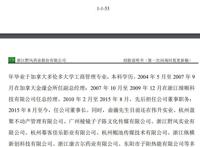子谦译文|创业教什么:六种主流创业理论的对比研究(27)
2023-06-03 来源:旧番剧
在逻辑层面上,表1从理论和哲学原理方面对关于创业创造过程本质的几个关键假设加以说明,比如不确定性的概念、与结果可预测性的怀疑程度相关的未来观点,以及发现或创造过程的本质。所有被审查过的创业方法,或明或暗地都涉及到其处方的逻辑。例如,商业计划使用场景构建作为“预测”未来的一种方式,而效果逻辑理论依靠启发式方法,创造未来的条件的同时并控制当前的条件。知识和证据是几乎所有被调查的创业方法中逻辑层面的核心概念,而创业者正是通过与外部世界互动的知识收集过程来进行学习,并最终减少他们所面临的不确定性。For the level of model, Table 1 shows that a number of models prescribe procedural steps that represent the iterative nature of the entrepreneurial process. Such models can be conceived of as summarizing heuristics or algorithms. In some models—such as the lean startup methodology, effectuation, and design thinking—there are a clear order and feedback loops as part of their prescriptions. These methods all present explicit models with iterations for how to make progress toward the realization of entrepreneurial objectives. Business planning provides a clear sequence for necessary activities but is designed to be used at the start of the process or in a predefined cycle (i.e., the annual planning cycle). Nevertheless, it serves as an important model, enumerating specific steps and areas of focus. Several models refer to the involvement of external stakeholders. For instance, the lean startup methodology suggests that informed decisions can be achieved through frequent interactions with external stakeholders, such as customers, partners, suppliers, and investors (Ries 2011;Klein 2013). Similarly, design thinking outlines steps for collecting user feedback in order to improve the quality of ideas and to refine them in line with the feedback received.
猜你喜欢
动漫推荐
免责声明:动漫番剧数据来源网络!本站不收费,无vip,请勿上当!
www.jiufanju.com-旧番剧





















